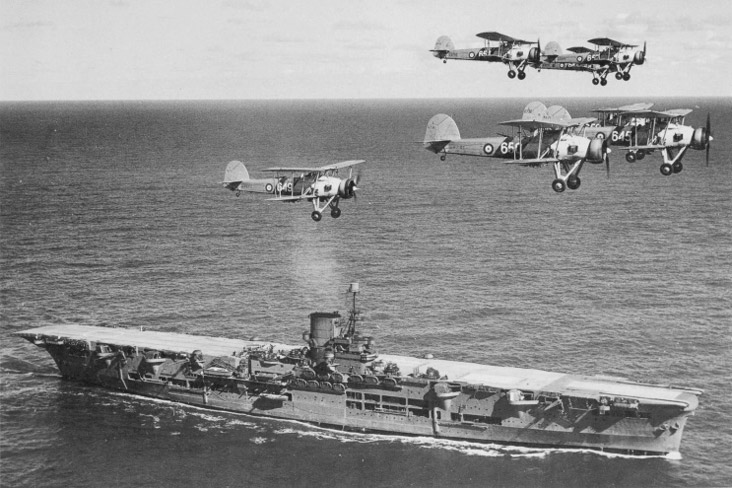Himmler - The Man Germany Fears
The War Illustrated, Volume 1, No. 4, Page 121, October 7, 1939.
In the circle of Nazi chiefs, Heinrich Himmler occupies a unique place, and particularly since war began has the importance of this arch-spy, super-terrorist of the Nazi people become clear for all to see.
If there is one man in Nazi Germany whom everybody fears it is Heinrich Himmler, chief of the two great terroristic organisations, the Gestapo and the S.S.
Of lowly birth, and in early days a school-teacher, he allied himself with Hitler and was the Fuhrer’s standard-bearer during the unsuccessful Munich putsch of 1923. Since 1929 he has been commander of the S.S. (Schultz-Staffeln, protection corps), the black- uniformed private army which is so much in evidence in the Nazi Reich. These Black Guards are the army of the home front; 200,000 of them are trained as regular soldiers, serve for seven years, and live in barracks. They are selected with particular cars, for it is intended that they should constitute a kind of Praetorian Guard such as surrounded the emperors of imperial Rome, or the janissaries of the sultan at Constantinople. Trained in special schools set up in castles in various parts of the Reich, they are permitted to marry only after a thorough investigation of the pedigree of the proposed bride. They are even forbidden to smoke. It is said that two of the Black Guards are always in attendance on Herr Hitler to protect his life with their own; even when he sleeps one is on guard inside the room while the other keeps watch between the double doors leading to it.
As commander of the Black Guards, as the person primarily responsible for the safety of the Fuhrer, Himmler wields a tremendous power, but the hate which he inspires is due to his position as chief of the Gestapo (Geheime Staatspolizei, secret police). He is the Fouche of the Nazi regime, and he performs his duties with an efficiency of the most sinister kind. His agents-spies is the better word-are everywhere. The concierges of most of the great apartment house with which the German cities are filled are suspected of being in his pay, and he has informers (not to say, agents provocateurs) in all the factories and big business houses, in the universities and the schools, in newspaper-offices and in the beer halls. So widespread are the ramifications of his spy system that conversation in Germany is becoming a lost art, for even the most careless gossip may be reported by the Gestapo and call down upon the unhappy speaker’s head the most dire consequences. For lapses of speech as well as of conduct the doors of the concentration camp are ever open-and the concentration camps are under Himmler’s control.
With typically Teutonic efficiency and zeal he has built up a colossal card index system recording the names and particulars of all those persons in every rank of life who are suspected of being even lukewarm in their attachment to the Nazi system. No one knows how many millions of the German people are included in this vast dossier-and it is not intended that anybody should know.
To Himmler’s H.Q. are reported the names of all those who in the heat of the moment have let out an unguarded statement, or those who are believed to be not satisfied with the news given by the German official wireless, but in the silent darkness of their own homes listen in to the news bulletins given over the air by Paris and Brussels, Moscow and London. When you put through a telephone-call in Germany you can never be sure that an agent of the Gestapo is not tapping the line; and when you open your letters at the breakfast-table you have an uneasy feeling that someone has opened them before you.
Fearful in peacetime, Himmler casts an even more monstrous shadow now that Germany is at war. By his regimentation of the home front, he strives to maintain the people’s morale. But it may be doubted whether morale can flourish in the forcing-bed of terrorism.
In appearance Himmler is the typical German bureaucrat; some people would call him insignificant-until they look inti his eyes. He is by no means a great speaker-indeed, he is not a believer in speeches, but rather in action of the underground variety. Essentially he is an organiser, a ferreter-out of secrets, one who has an excellent ear and nose for the slightest suggestion of disaffection. Although those who have made his personal acquaintance say he has considerable charm, it is probably true to say that he has no friends, for even Hitler may wonder if his allegiance to him is based on personal affection or on cool calculation. During the "blood purge" of June 30, 1934, it was Himmler’s Black Guards who dispatched in cold blood Rohm and scores-perhaps hundreds-of the Nazi personnel whose continued existence their Fuhrer had decided was inconvenient to the maintenance of his power.
Those who hold high place in the Nazi movement today may well remember the callous competence displayed by Himmler and his agents in the mass executions.
Master spy, executioner in chief-no wonder Himmler is hated and feared.
Index
Previous article
Hitler's S O S to the Jews
One of the most illuminating sidelights on Nazi Germany’s readiness or otherwise for the waging of a long war was the appeal to the banished Jews to come back and work for the country which, under H
Next article
Battleships Beat the Bombers
The first surface naval engagement of the war was a raid by Nazi warplanes on a section of Britain's Navy, on patrol in the North Sea. The Germans claimed it as a famous victory until Mr. Churchill ef




